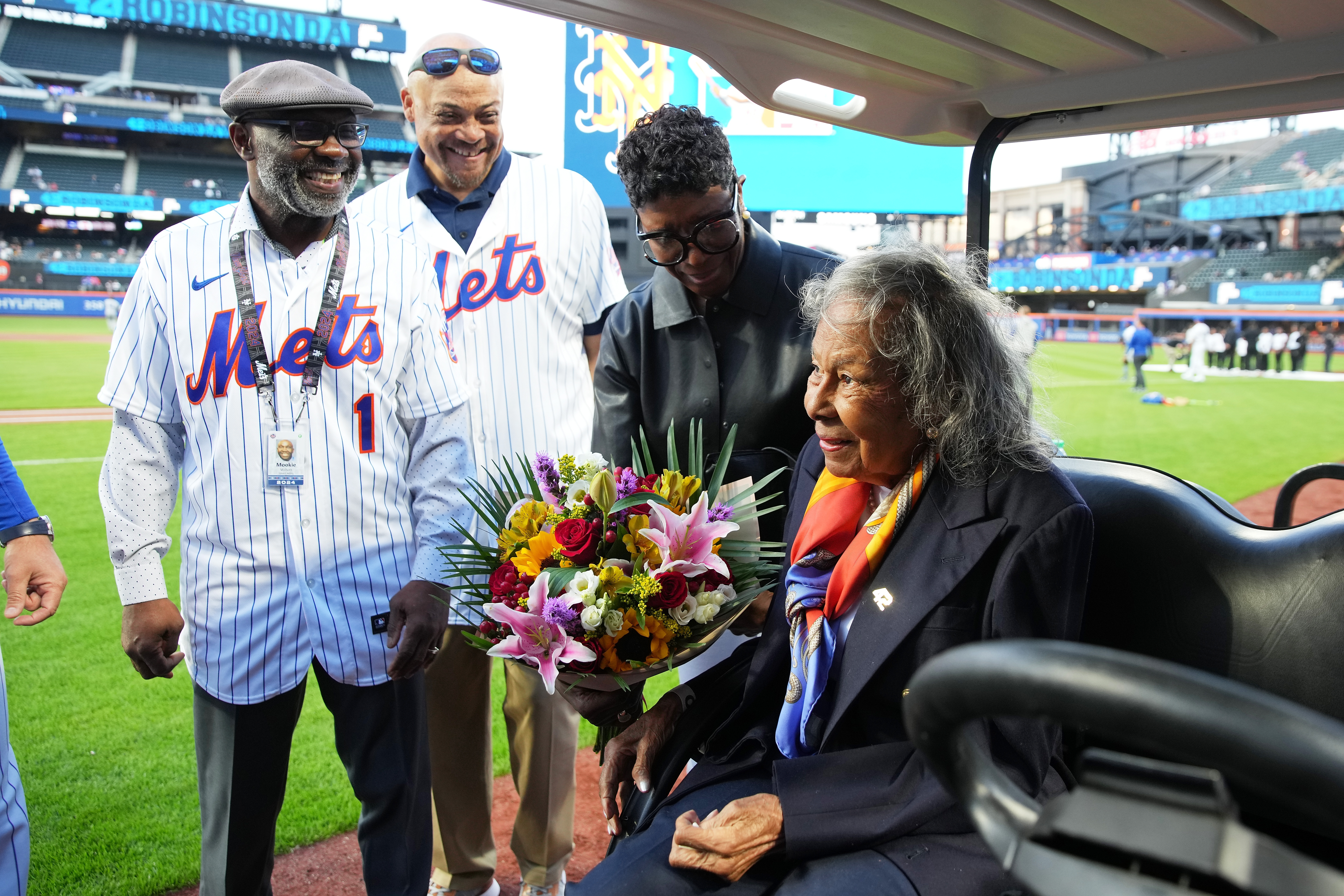This piece initially ran on May 11, 2019, during a rare Phillies series against the Royals in Kansas Cirt. We're re-publishing it today as we recognize Jackie Robinson Day around baseball.
***
KANSAS CITY — Amidst the 162-game grind of a major league baseball season — and let's not forget those 30 games in spring training — off days become very important to a player. They're a time to recharge and refresh the body, a time to detach from the schedule and clear the mind.
Stay in the game with the latest updates on your beloved Philadelphia sports teams! Sign up here for our All Access Daily newsletter.
Andrew McCutchen has been in the majors for 11 seasons. Thursday was the most important off day of his career and it had nothing to do with clearing his mind.
Just the opposite.
It was about what he learned.
"It was so informative," McCutchen raved. "I wish I took notes."
MLB
Between series against the St. Louis Cardinals and Kansas City Royals, the Phillies All-Star outfielder followed through on his long-held desire to visit the Negro Leagues Baseball Museum in Kansas City. McCutchen was joined by several Phillies teammates, members of the coaching staff and club officials for a fascinating hour-long journey through the history of the Negro Leagues, expertly narrated by museum president Bob Kendrick.
"The state of Pennsylvania, from Philadelphia to Pittsburgh, was a hotbed for Negro League Baseball," Kendrick told the group from Philadelphia.
The Hilldale club from Delaware County played in the first Negro League World Series in 1924. The Philadelphia Royal Giants toured Japan in 1927 and helped introduce that baseball-loving nation to the game.
Of course, no mention of the Negro Leagues and the state of Pennsylvania would be complete without a word or two about the great Josh Gibson, the power-hitting catcher from the Homestand Grays in Pittsburgh.
"No steroids in this guy," Kendrick said, pointing to a statue of Gibson. "Just ham hocks and collard greens. He used a big bat, 40 ounces, 41 inches. They used to call him the black Babe Ruth. And some people called Babe Ruth the white Josh Gibson."
Kendrick talked about the great Roy Campanella, one of the greatest athletes to ever come out of Philadelphia. The Simon Gratz High School product broke in with the Baltimore Elite Giants as a teenager and went on to win three National League MVP awards with the Brooklyn Dodgers after integration.
Kendrick told stories about Olympian Jesse Owens, the fastest man in the world in his time, and how he'd race anyone except James "Cool Papa" Bell, the fastest man in the Negro Leagues. He regaled the group with stories about Satchel Paige, who pitched into his 50s but never knew his actual age because his birth record was placed in the back of the family Bible and, as Paige said, "The goat ate the Bible."
The Negro Leagues featured a great collection of players and personalities with a daring and entertaining style of play. The demand to see them play was so great that night baseball was born in the Negro Leagues long before it came to the major leagues.
The thing that struck you during the hour-long tour is how upbeat everything is at the museum. There is no woe in the place. It's a celebration of the game framed around the adversity the players overcame to play it. Frankly, there's a lot of joy in the place.
"Out of segregation comes a wonderful story of triumph," Kendrick said.
The Negro Leagues were founded in 1920 and ran through 1960, 14 seasons after Jackie Robinson debuted with the Brooklyn Dodgers.
Robinson played for the Kansas City Monarchs, the Negro Leagues' most famous club. As Kendrick explained during the tour, Robinson was not the best player in the Negro Leagues, but, in the mind of Dodgers executive Branch Rickey, he was the best person to break the color barrier because he was a few years older than some young stars, he was college educated, had been in the military and had the "guts" not to fight back when he was encountered with treatment that warranted fighting back.
McCutchen had always known Robinson's story. But hearing it in this setting was powerful.
"Branch Rickey knew this is all or nothing, if it doesn't work it's never going to work," he said. "Jackie had to succeed. That's unbelievable pressure. You're representing so much."
Robinson succeeded.
"In 1947, Jackie Robinson not only changed baseball forever, he changed the country," Kendrick said. "Jackie carried 21 million people on his back."
Robinson won the National League MVP award in 1949.
McCutchen won the same award in 2013.
Kendrick was thrilled that the schedule had finally put McCutchen and the Phillies contingent in Kansas City so they could visit the museum.
"This is a great story and we need to keep telling the story," Kendrick said. "It's very important to have Andrew and all of these guys here in person. It's important for the African American and Hispanic stars of our game to know this story. These are their roots. It's important for them to know their lineage. No ands, ifs or buts, you're not playing if it wasn't for these guys and the sacrifices they made to play the game they love."
McCutchen will return to the Negro Leagues Museum someday.
"I want to take my family," he said. "I want my son to know the reason I'm able to play this game and the reason he'll be able to play the game. When you learn the history, you have a greater respect for it and just putting on a uniform and stepping on a field means more.
"It's paying your respects to those guys who came before us and getting educated. I knew a little about what these guys went through but not as much as I should. It was a great experience."


